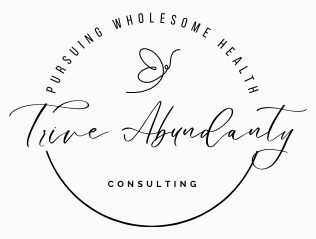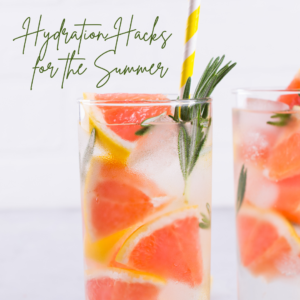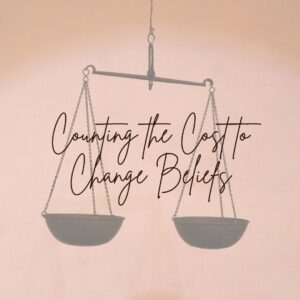This is post 38 in the Living Fully Alive blog series. For the best learning experience, please consider reading the posts in the order they were published.
Welcome to the second part of Keys to Personal Transformation. I hope you will revisit these pages often for review, help, accountability and inspiration as God leads you to tackle different issues in your life where he wants to bring abundance and fullness to you.
Hope
Hope was our key number five, which we have already looked at in key one. Hope must be guarded. Hope must be fed. For me that means looking at the things I can’t see. Believing the promises, remembering the promises. Trusting the promises. Trusting God is good and faithful. Avoiding making statements containing superlatives such as “never”. Catching when I feel overwhelmed and when I feel like giving up. Those are signs of hopelessness. I need to look for the power. Look for the gifts. Look for the ways God is in the present. Hopelessness is the enemy taunting me. It is him trying to put obstacles in my path so I stop progressing on the journey. It stops me from making headway if I pay attention to it. The enemy loves to steal our hope because hopelessness stops transformation. It causes defeat, and people give up before breakthrough happens. No one gets freedom when they are so hopeless that they believe freedom does not exist. Until I have hope I can’t deal with anything because all I’ll see is the hopelessness of the situation. If my prover is set on hopelessness it will continue looking for reasons why I’ll never get free, which shuts down my ability to grow. Fortunately for me, because of the tools this class has given me, I actually think I have a fair amount of hope. As I keep going on the journey though, when things get messy, obstacles show up, I need to remember lack of hope is a bigger issue in people’s lives than the problem they are facing. If you have hope you will have the courage to persevere all the way through something.
Hopelessness creates a “what’s the point” card which creates so many problems. When I don’t think anything I do matters, I give up and just float along, give in to all sorts of unhealthy habits, behaviors and thoughts. This is where it is easy to give in to depression. It’s the all or nothing mentality. I have felt like this when we tried to launch a community hosted in our house a few separate times and it always dwindled out and felt like it didn’t matter how many times I invited, how easy I made it for people to just come, it never lasted. It got to the point where I just stopped inviting. Same with finding good friends, either they move or I move, or I get to know them long enough to discover they just used me after all. There is an element of exhaustion that feeds hopelessness, because it just feels like it was all wasted and now I have to start from scratch again. And most of the time I do pick myself up and do it all over again. But there is a disillusionment in there somewhere, and that may be an indirect sign to me that there is underlying hopelessness. I get the same way when I feel exhausted and overwhelmed and tired emotionally. Those are all signs that hopelessness wants to come in.
How do I guard against hopelessness? Looking at what I can do right then and there. Focusing on celebrating the incremental things. How can I celebrate my incremental successes? What would be good rewards for me when I do well on the one step at a time journey? I think rewarding myself some way for showing up might be good. So in the middle of failure, focus on one good decision I can make right then. That takes me out of hopelessness. I’m never too far gone for redemption, I am always one choice away.
My greatest adversary to hope is expectation. I have expectations of fixing things, of doing the steps perfectly, of making progress on a predictable line, and it creates judgment every time I don’t meet it. I am pretty sure I have probably scared people off before in the attempt to create the deep relationships I want too fast. How can I keep from putting up expectation as I embark on this journey of gaining freedom in relationships? Too much focus on false ideas, false goals, false timelines creates hopelessness. The phrase of just enjoying the journey seems to make more sense. I need to give up that control of trying to force it, of trying to make it happen. I am pretty sure part of this struggle is that “making things happen because if I don’t nothing will change”, is pretty likely one of my coping mechanisms. I give up, at least for a time, when I don’t meet my expectations by the set time. Why does giving up make any sense? Such an irrational thought. I should keep going, I have nothing to lose and so much to gain, even if it is at a slower pace than I like. I need to allow myself to be delivered from expectation. Expectation and expectancy are two different things. Expectancy says, “I am expectant of good things, expectant of God breaking through, expectant of him bringing freedom and life”, but I let go of the expectation of how it’s going to happen and when.
An important phrase or line of thinking to be aware of is that of “I’ve already tried everything” – people think they have tried everything but that is never true. Instead I need to ask myself, “What have I not tried yet? Or what else is out there?” Maybe even “What stepping stones has God sent my way that I have discounted or dismissed and can I go back and fix that?” When I tell myself that I’ve tried everything I create hopelessness. I need to be careful of the words I speak. It is stuff similar to “I have tried everything”. I think “I don’t know what else to do” also belongs into this category. It goes back to being powerful, seeing, what I can do.
For me I think it is particularly important that I find groups I can join and be faithful in. If I can’t get people to join my vision, I can at least go be faithful in something that comes close. I also need to remind myself of the things that have been successful because I have looked at how I can tweak it. I used to have an online Bible group. I wasn’t making the studies I just facilitated online sharing with mostly people who couldn’t make it to a real time study. I would faithfully post every day but the participation was really poor. Out of maybe 20 or so people who actually requested to be given access, there were usually only 2 or three regular participants. I prayed about it many times and eventually got the sense the time had come to close the group to those who were just reading but not participating. It was difficult, because I liked the idea of some people getting blessed by reading even if they don’t have time to write. But I sensed the time had come and I closed it to non participants. Now we are a group of three, and we have been able to go so much deeper because everyone knows each other and trusts each other. There wasn’t that level of trust before. This group has been a source of great encouragement to me in the area of relationships and depth. It shows I am in transition and growth away from the very belief I am trying to replace. I am grateful that God helped me re-evaluate the group and try something I hadn’t tried yet instead of just shutting it down saying I’ve tried for years.
If you’ve tried something for a while, it may be a matter of committing to stick with it over a longer term. Or it could be that brainstorming will bring up some more ideas to try. I think it is helpful to pray about these issues and ask for revelation and insight from God. He may speak about it and give prompts we may not come up with on our own. Especially in the area of relationships I think it is important that I accept the long-term importance. Some things just don’t happen in a few short months. My disappointment and burnout from previous times has certainly influenced my hesitance to invest long term because of how much it will cost me if it doesn’t pan out again. Part of what I am sensing as I process this stuff is that God values relationship so much, I need to be willing to pay the price, but also to be smart about it and be as Spirit led about it as I can possibly be, because I do believe he would spare me some painful detours if I learn to discern his voice in this area more.
I remember a quote from Heidi Baker, something along the line “you win if you don’t quit”. Abi and Justin mentioned that if any of us class participants were disappointed because we notice we are still not fully whole after this 12 week course, we need to take this “not quitting” to heart. Short of miraculous intervention nobody will get whole in 12 weeks, but we are given tools and it may be that God is not doing something overnight because he wants to grow perseverance in us and has valuable things for us that only come by walking the journey. Perseverance is an often-mentioned trait in the Bible. It would not be in there if there weren’t a need for us to hear it and embrace it. I believe memorizing verses about perseverance will be instrumental in helping us keep our eyes on the goal.
By the way, trying to change things in crisis is not ideal. Try to change your beliefs and issues when things are calm, not when they are in crisis, and keep working them even when the heat goes down some.
Grieving
Key number six is learning to grieve well. This is touching on the sermon I just listened to that gave me permission to mourn. As we have discovered, there comes loss and cost with false beliefs. Learning to grieve those losses well is important. I am disappointed that they didn’t get into the grieving well more. Because scripturally speaking, aren’t we to look at the unseen, not at the troubles? At the promises, not at the losses. Unless what we are supposed to do with grieving is validation, forgiveness, and finding what we can do, then I really think I am not sure. Acceptance feels so difficult. It feels powerless. I know that the acceptance helps us turn our focus from the external that is out of our control to the internal that we can do something about. It still sucks. I can see how validation needs to be a close companion in those moments. I can accept that I have caused myself a lot of this pain. No, I was not the one who started it, but I have been running with it and it has been excruciatingly hard and tiring, taxing, hurtful and endless. I can validate myself for all I have lost, for the pain of all that wasn’t and for all that was, for how I missed out, for how it damaged me in emotional and physical ways. I can forgive the people involved including myself, and I can accept that this is the mess I am in. I wish I weren’t, but here I am and no one is going to get me out but me. Other than that, I don’t know what I can do here. Unresolved grief will weigh me down. God gave me a word about no regrets. Is part of the grieving process seeing the things that got stolen, the pain, the loss caused, the pain of things that can’t ever be because it’s too late, the pain of loss of energy and all that but then saying, God, this is small, because you say it is small, and it produces so much glory that it will all have been worth it. Is that what grieving it through to hope is, to look back up at God and wait for him to have the final word and write the final chapter of my book?
I am adding this here because God has taken me on a grieving journey since doing LFA, learning how to grieve with him. I am in the process of working on a grief journal with prompts to engage in this for those of you who know you need extra time in this area. The praise report is that after I have worked my way through this journal myself, I actually got physical healing. I used to have asthma, needing my inhaler at least once a day, more on exercise days and cold days. After I got done with the grieving process, I started noticing that I needed the inhaler less and less. It has now been two solid years that I have been inhaler free! I didn’t connect the two at first, but then I read someplace that asthma can be linked to unresolved grief. When I read that it all suddenly came together. I will create a store once the journal is ready so it can be purchased and downloaded, so please be on the lookout for this!
Self-Compassion
Self-compassion was our seventh and last key. It has already been touched on here and elsewhere. I get that my understanding of relationships got formed when I was very young and not able to think with reason. I understand why I have given up and begun isolating. “In this case, little one, this is what you learned. You didn’t know there was any other way to have relationships except to take on the full responsibility and let it all be on you. Nobody taught you about your needs being valid, so you by omission were taught having emotional, relational needs is wrong and you silenced them. You were taught by example how to enable others to stay in their passivity. You didn’t know how to steward relationships in which all are powerful and invested. Though you hoped with your conscious mind to find exactly such relationships, your subconscious kept teaching you that there is no such thing. You tried to the point of complete disillusionment and exhaustion. I get that isolating looked like the best option. I get how then you felt worse every time you saw others have or talk about the relationships that you had never been able to experience. Then you felt worse for being judged because you had stopped trying. You didn’t know you had other choices. You didn’t know better and you feel so bad for not having had the tools sooner because of how set back you feel you are. But you didn’t know. Now that you know better, we can learn a new and better way together.”
It is important to see why I needed a coping mechanism. Or see what need was driving my behavior. What was driving my behavior was the utter lack of knowing how else to navigate relationships. How to discern the dynamics in a relationship and learn what to be responsible for and what to not take on. I was starved fully and utterly and completely in the emotional and relational realm. Completely. I was driven by starvation. I needed this coping mechanism because my subconscious heart need was crying out but I didn’t know it had a right to be heard and met and so shutting it down with isolation and self-protection was the only way I knew how to deal with it. I was needing connection but didn’t know how to find it. That all sounds so dramatic. As you are doing your work, do you feel the same? I think it is important to allow how I felt to actually come to the front, even if it feels embarrassingly dramatic. I know there is a fine line between feeling it fully and giving in to self-pity. I’m not going there, but I am not swinging to the extreme opposite by not allowing the feelings to be felt. In the sermon I listened to today, it mentioned that mourning is a step, you step in and out of it on to joy. That will take some processing, the joy part. But it confirms that mourning is part of the process. Don’t rob yourself of it, even if it hurts, is sad and feels overwhelming and unproductive. The tears, scientifically and spiritually actually wash away the pain, the negative effects of the loss and hurt. Trust the process. It’s all part of the process.
In trying to build self-compassion for the situation, I can see myself as a little kid – baby learning to walk. If I don’t see myself as the little girl, I have heightened expectations and expectations lead to hopelessness, thinking I should be farther along. But on earth even at eighty, I am just a little kid. I am a little cute girl whom I can teach how to learn to take care of her relational needs, and I can affirm her from grown up me as well as I possibly can and go to God to learn how to grow in the pursuit of healthy relationships.
A little girl would not know how to have a conversation, she would have to be taught. A little girl does not know how to grieve the loss of a friendship, she will have to be taught. A little girl does not know how to receive discipline while still feeling loved, she needs to be taught gently and lovingly. A little girl does not know how to handle being ignored and used both at the same time. She needs to be taught to have a voice and to know her needs are real and legit. And she does not know how to meet them herself and with God when those charged with the task are completely failing her. She needs to be taught.
It’s ok that I’m still learning. Little ones fall thousands of times in all sorts of ways on the journey of learning all the life skills. If I remember that I am learning important life skills and that falling is normal, I can give myself grace instead of beat myself up for having failed yet again. Messing up while trying to grow is permissible and ok. I allow myself to make messes and to fall. I would never yell at a little one learning to cut bananas for making mush out of them. I would never tell her she’ll never be a cook because she can’t even cut bananas. I need to give myself the same patience and grace and room for growth and learning that I give to little ones. Instead I will say, “You can do this. Let’s get you up and let’s try this again. You will be great at this before you know it”. That is self-compassion. “I believe in you, I am kind and patient and encouraging with you. I am on your team. I am here to help you succeed”.
If you need help look up all of the verses in the Bible about God’s patience.
Justin shared that he imagines earth is like a playground, given to him for an afternoon to learn something. I know that is not completely true, but for the purpose of this class it can work. Every kid on the playground may learn a different lesson about unconditional love in that afternoon. Earth is a gift to learn the lesson. So if earth was given to me just to learn how to discover and enter into connection, then if that is what I learn, that is great. Someone else is going to learn something else. Look for the beautiful gift we get to harvest from this earth, and get to take with us because it is unseen and will last forever. This way I don’t get as caught up in the little moments and look at the whole picture more.
Something that many struggle with is the concept that our best is enough. What was my intention? Did I give my best? And for people like me, who think I should have known better, the best is what we managed to do operating from the subconscious place of us. Did I do my best with all the stuff from below the surface attached to me? I would have to say just looking at my life so far realizing how challenged and untaught I was, I have done better than I thought. What a revelation! My conscious beliefs may demand more, but my subconscious beliefs are the ones that were sabotaging me and trying to tell me I am worthless, I don’t deserve to have fulfilling relationships, I am less important than others, there is no way to find what I need. What I need is too much, it is unreasonable and illusory. That is what my subconscious belief has thrown at me all my life and I have managed to become somebody who is actually connected with my feelings enough to where I can grieve the absence of relational connection. I was being driven by my subconscious belief system that I didn’t know about and I didn’t know better, didn’t understand that was at work. And with all that, I did give my best. I get an A+ for effort without a doubt. I was doing my best without knowing, but now that I know I am going to do my best to change my snow path in my mind, I am breaking the bad behavior shame cycle, I am forgiving myself, and I am speaking over myself that there is always room for redemption.
Forgiveness – It’s what Jesus modeled when he said to forgive them because they don’t know what they do. I didn’t know what I was doing either. He had compassion for them for not understanding what they were doing. I can see myself through that same posture of not knowing what was driving me, or not having known, or understood how that was impacting and motivating me to live the way I did.
The truth is God is still in the business of redeeming all things, both here on earth or in heaven. It’s not done until he says it’s done.
Balance
In closing, it is important to keep an eye on balance – the truth in tension we were introduced way early on in the class. Any points from the class taken to an extreme will become unbalanced and unhealthy and won’t lead to progress and growth. Abi calls it the holding of two ends of the same stick. Don’t have expectations of comparison. I must not compare myself with others for expectations. It is unhealthy. What would that look like for my relationship issues? I guess my expectations need to be realistic in that it will take me a while to learn how to manage myself in a powerful and healthy way in any relationship. I also need to give the grace, that currently I am going through a really tough season both as a parent and as a wife, and there are extremely heavy pressures and stresses on me, and I am not likely going to do well putting pressures of time on myself by which to be all accomplished. I need to give myself grace and allow myself the time it takes to really nourish and sow into this situation as a whole and not separate different areas of my life from the rest of what is going on. I can relax by expecting round about situations, feeling like I’m going in circles, I can accept it as realistic.
Always being self-compassionate without changing beliefs will result in no transformation. If I only focus on changing beliefs and don’t give love, forgiveness and compassion I will be shut down and it will become a religious exercise.
I am powerful, I can change my life, own it, I might have gotten myself here, but without unconditional love, forgiveness and compassion, it is going to put me into the shame cycle. We need the hope of change and the redemption that comes with forgiveness and love.
I need to allow myself to feel what I need and at the same time not let those feelings drive me. Sometimes I will need to go to the root and sometimes I just need to change my beliefs or realize what I am feeling is shame and I have already dealt with it and just need to tell it to go packing. I need to invite all of it into my journey and take it step by step in a balanced way. I need to learn how to live with acceptance and contend for more at the same time, instead of settling in. Compassion, validation, understanding but also realize at the same time that I am responsible for my choices.
Our last reminder was to not forget to play. If the journey of transformation is serious it bogs me down. We were tasked with learning how to laugh at ourselves, learning how to play. Enjoying where we are at and where we are going. Learning to be loved now, while we are messy, while we are not where we want to be, while we are still walking out of bondage and hurting. We can be loved here right now. Conditional love says “I cannot be loved until I am perfect”. If I can receive unconditional love I can let go of control, relax and know I am going to make it and get to where I am supposed to get.
May this song encourage you and keep you motivated to press on and persevere!
This wraps up the original Living Fully Alive course! What a ride it has been! I hope following along with the posts has been a blessing to you and has helped you find tools to feel empowered and hopeful for your own ongoing transformation!
My plan is to learn how to create a self-paced email course out of all these posts. Be looking for an announcement for that (although first I have to go learn how to do it). If all works as I envision, you should be able to sign up for the course (which will be free) and get your first post with homework in your email box, and once you have completed it, your next post will be launched. I sure hope I figure out how, because that would be so awesome! If you like, sign up for the mailing list (you can find a sign up box at the top right of every post), because I will announce it through there once I have it ready.
I hope to see you here often!
To learn more about the Living Fully Alive course, please click the hyperlink.







